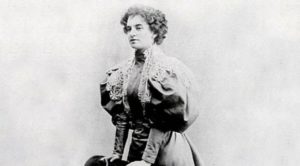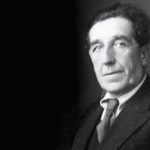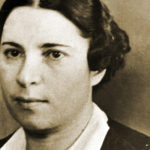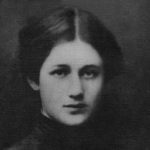Facts from the life of Zinaida Hippius
 Writer and poet Zynaida Gippius, who is considered one of the brightest creative personalities of the Silver Age, was a very extraordinary person. Her deliberate disregard for fashion, certain traditions and public opinion in combination with a sharp tongue made her extremely popular. At the same time, those who treated her were, to put it mildly, not very warm – her publications created many enemies for her.
Writer and poet Zynaida Gippius, who is considered one of the brightest creative personalities of the Silver Age, was a very extraordinary person. Her deliberate disregard for fashion, certain traditions and public opinion in combination with a sharp tongue made her extremely popular. At the same time, those who treated her were, to put it mildly, not very warm – her publications created many enemies for her.
The poetess had German roots.
For the first time she picked up a book at the age of seven, and since then has not parted with reading until the end of her life.
At eleven, Zinaida had already written her first poems. She later herself told about this in one of her letters to the poet Valery Bryusov.
Zinaida Gippius had three sisters.
She tried to translate into Russian “Manfred” by Gordon Byron, but failed.
At eighteen, she met a writer and therefore Dmitry Merezhkovsky, whom she soon married. The couple lived together for 52 years, until the death of Dmitry.
Early work Gippius saturated with a dark atmosphere.
Her poem “Follow Me” was turned into a song by rock musician Anatoly Krupnov.
After the wedding, Zinaida Hippius and Dmitry Merezhkovsky agreed that she would write only prose, and he only poetry, but her husband soon violated the agreement with the consent of the spouse.
Zinaida Gippius was published under a variety of pseudonyms, and she used mostly male names. Most often, her critical publications were published by being signed by Anton Krainy.
Already known, Gippius wrote a review of Sergey Yesenin’s poems, which at that time was completely unknown.
The poetess did not go out without a huge amount of cosmetics on her face. Contemporaries say that she was attractive, but the bright make-up in combination with red hair looked very shocking.
At one time, it was Gippius who helped Alexander Blok’s first publication see the light.
In her life there were many novels, but none of them went far.
Famous writers and poets regularly gathered at the literary salon of Zinaida Gippius.
Osip Mandelstam noted that his literary journey began successfully with the help of Gippius.
After the revolution of 1905, she and her husband left Russia, where she never returned.
When Merezhkovsky died, Zinaida Gippius cut off all social ties. She outlived him by four years.
The revolution of 1917 horrified the poetess. Her notes and diaries written in subsequent years are filled with bitter regrets about a lost country and hatred of the communists. Spouse fully shared her opinion.
Zinaida Hippius is buried in the same grave with her husband.



























